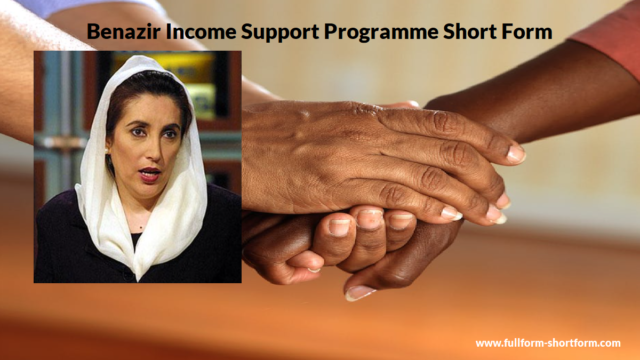Table of Contents
Benazir Income Support Programme Short Form
Benazir Income Support Programme Short Form is BISP.
Benazir Income Support Programme
The Benazir Income Support Programme (BISP) is a social welfare program launched by the Government of Pakistan in July 2008. It is named after former Prime Minister Benazir Bhutto, who was assassinated in 2007. The program was initially designed to provide financial assistance to women in low-income households, but it has since expanded to include all vulnerable segments of society.
Objectives of BISP
The main objective of the BISP is to alleviate poverty and provide financial assistance to the most vulnerable segments of society. The program aims to achieve this goal by:
- Providing cash transfers to eligible families
- Supporting the human capital development of beneficiaries
- Encouraging financial inclusion through bank accounts
- Empowering women and promoting gender equality
- Improving access to basic services such as education, health, and housing
Eligibility Criteria for BISP
To be eligible for the BISP, a household must meet the following criteria:
- Be living below the poverty line, as determined by a poverty scorecard
- Have no member who owns more than 12.5 acres of land or earns more than Rs. 10,000 per month
- Have no member who is a government employee or pensioner
- Have at least one woman who is willing to receive the cash transfer
Benefits of BISP
The BISP provides financial assistance to eligible families in the form of cash transfers. The amount of the transfer varies depending on the household’s poverty score and the number of eligible beneficiaries. As of 2022, the maximum monthly cash transfer is Rs. 2,000 per beneficiary, with a maximum of four beneficiaries per household.
In addition to cash transfers, the BISP also provides support for human capital development. This includes:
- Vocational training for women
- Scholarships for children
- Health and nutrition education
- Awareness campaigns on social issues
Impact of BISP
Since its inception in 2008, the BISP has had a significant impact on poverty reduction in Pakistan. According to a World Bank report, the program has lifted over 5 million people out of poverty and has reduced the poverty gap by 5.5%.
Furthermore, the BISP has been successful in empowering women and promoting gender equality. As of 2022, over 97% of the cash transfer beneficiaries are women. This has not only increased women’s participation in the labor force but has also improved their decision-making power within the household.
Conclusion
The Benazir Income Support Programme (BISP) is a vital social welfare program in Pakistan that aims to provide financial assistance to vulnerable families. Through its cash transfer and human capital development initiatives, the program has succeeded in alleviating poverty and promoting gender equality. If you are a low-income household in Pakistan and meet the eligibility criteria, I highly recommend that you apply for the BISP to receive the benefits that you are entitled to.
